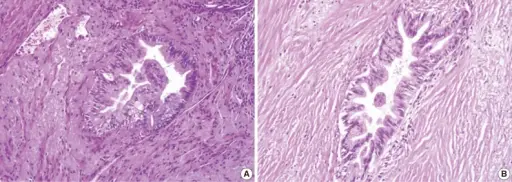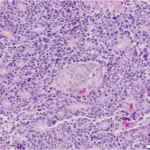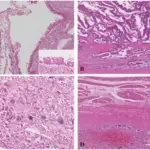Pancreatic Intraepithelial Neoplasia (PanIN) is a well-defined precursor histologically to aggressive pancreas ductal adenocarcinoma.
What is the Pathology of Pancreatic Intraepithelial Neoplasia (PanIN)?
The pathology of pancreatic intraepithelial neoplasia (PanIN):
-Etiology: The cause of pancreatic intraepithelial neoplasia (PanIN) is idiopathically associated with gene mutations.
-Genes involved: KRAS2 gene, MAD4/DPC4, TP53, and p16/CDKN2A genes.
-Pathogenesis: The sequence of events that lead to pancreatic intraepithelial neoplasia (PanIN) is not well understood.
-Morphology: The morphology associated with pancreatic intraepithelial neoplasia (PanIN) shows they measure less than 0.5 cm,
-Histology: The histology associated with pancreatic intraepithelial neoplasia (PanIN) shows columnar epithelial cells, basally oriented uniform and round nuclei, with dysplasia.
How does Pancreatic Intraepithelial Neoplasia (PanIN) Present?
Patients with pancreatic intraepithelial neoplasia (PanIN) typically have no gender prevalence present at an age range of 50 to 80 years. The symptoms, features, and clinical findings associated with pancreatic intraepithelial neoplasia (PanIN) include noteworthy weight loss, fatigue mid-epigastric, anorexia, jaundice, and back pain.
How is Pancreatic Intraepithelial Neoplasia (PanIN) Diagnosed?
Pancreatic intraepithelial neoplasia (PanIN) is diagnosed through radiological studies and biopsy.
How is Pancreatic Intraepithelial Neoplasia (PanIN) Treated?
Pancreatic intraepithelial neoplasia (PanIN) is treated through surgical interventions, chemotherapy, and radiotherapy adjuvants.
What is the Prognosis of Pancreatic Intraepithelial Neoplasia (PanIN)?
The Prognosis of pancreatic intraepithelial neoplasia (PanIN) is poor as it is diagnosed when already it has metastasized.



